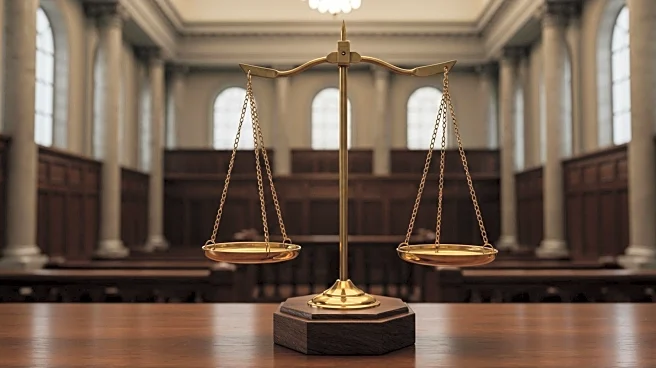What's Happening?
Kim Davis, the Kentucky clerk known for refusing to issue marriage licenses to same-sex couples, is appealing a court order to compensate a couple she denied. Davis is asking the Supreme Court to overturn the landmark Obergefell v. Hodges decision, which legalized same-sex marriage nationwide. This appeal has sparked concerns about the potential rollback of marriage equality, as some Supreme Court justices have previously expressed opposition to the Obergefell ruling. The case highlights ongoing tensions between religious beliefs and legal rights, and raises questions about the future of marriage equality in the United States.
Why It's Important?
The appeal by Kim Davis and the possibility of the Supreme Court reconsidering marriage equality could have significant implications for LGBTQ+ rights in the U.S. If the Court decides to overturn or modify the Obergefell decision, it could lead to a regression in the rights of same-sex couples, affecting their legal recognition and benefits. This situation underscores the fragility of civil rights advancements and the influence of judicial interpretations on societal norms. The outcome of this case could set a precedent for other rights related to personal freedoms and equality.
What's Next?
Legal experts and civil rights advocates are closely monitoring the Supreme Court's response to Davis's appeal. Should the Court agree to review the case, it could lead to a contentious legal battle with widespread implications for marriage equality. States may begin preparing for potential changes in the legal landscape by revisiting laws and protections for same-sex couples. Advocacy groups are likely to intensify efforts to safeguard marriage equality and prevent any rollback of rights.
Beyond the Headlines
The potential reconsideration of marriage equality by the Supreme Court reflects broader cultural and legal debates about the balance between religious freedom and civil rights. It raises ethical questions about the role of personal beliefs in shaping public policy and the extent to which the judiciary should influence societal values. This case could also impact other areas of civil rights, including reproductive freedom and privacy, as the Court's decisions often have ripple effects across various legal domains.











